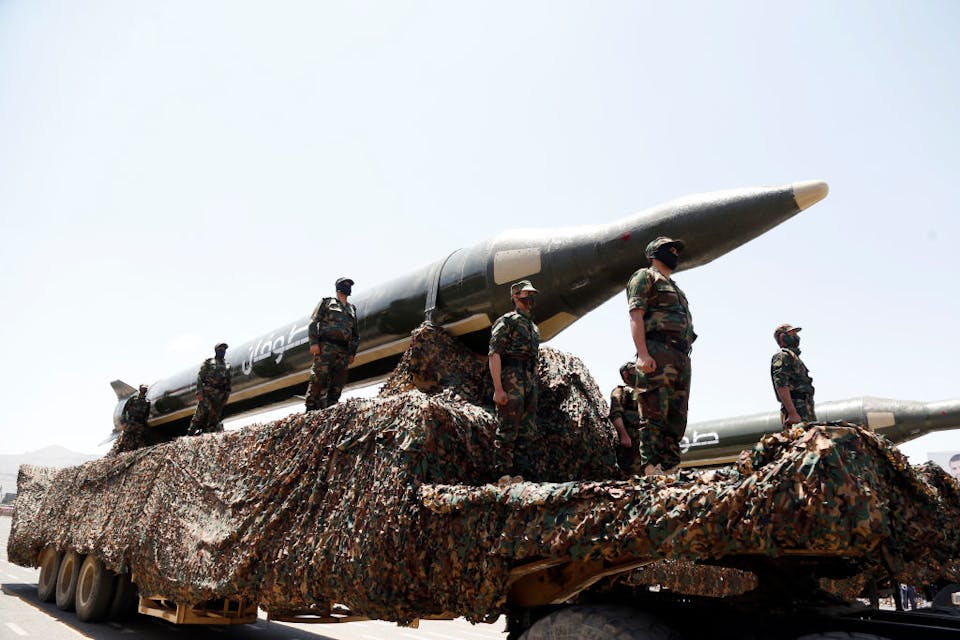
January 27, 2025
Diplomacy and Airstrikes Haven’t Stopped the Houthis. What Will?
Any agreement the terrorist group will accept is one the West would be better off rejecting.
On Tuesday, amid a flurry of executive orders, President Trump designated the Yemeni jihadists known as the Houthis a foreign terrorist organization (FTO), and directed the U.S. government to prevent American aid money from ending up in their hands. In doing so, he has reversed a policy decision his predecessor had made in his first few days in office. The move suggests the possibility of a more significant shift in American policy toward Yemen—a shift that would be greeted with relief in Israel.
Over the past few months, Israelis have been repeatedly awakened at night by sirens, sending them running for shelter from ballistic-missile attacks. The attacks were carried out by the Houthi regime in Yemen, which has been sporadically launching ballistic missiles and drones at Israel and at maritime traffic in the Red Sea for over a year. The Houthis have since been hit by hundreds of airstrikes launched by the U.S., the UK, and Israel, but show no signs of losing the capability or will to attack. As we stand in the critical moments of an Israel-Hamas cease-fire, it is important to understand how the Houthis got to this point, what the cease-fire means for their trajectory, and what the U.S. and its allies should do next to cope with the threat.
Jason Brodsky and I co-authored a piece for Mosaic in February 2024 titled “The World Is Not Taking the Houthis Seriously Enough.” As it turns out, fifteen months after Hamas launched its murderous attack on Israel, the Houthis remained the last member of Iran-led “axis of resistance” in the fight against Israel: a decimated Hizballah accepted a cease-fire, the Assad regime collapsed, and the Shiite militias in Iraq have been largely quiet.